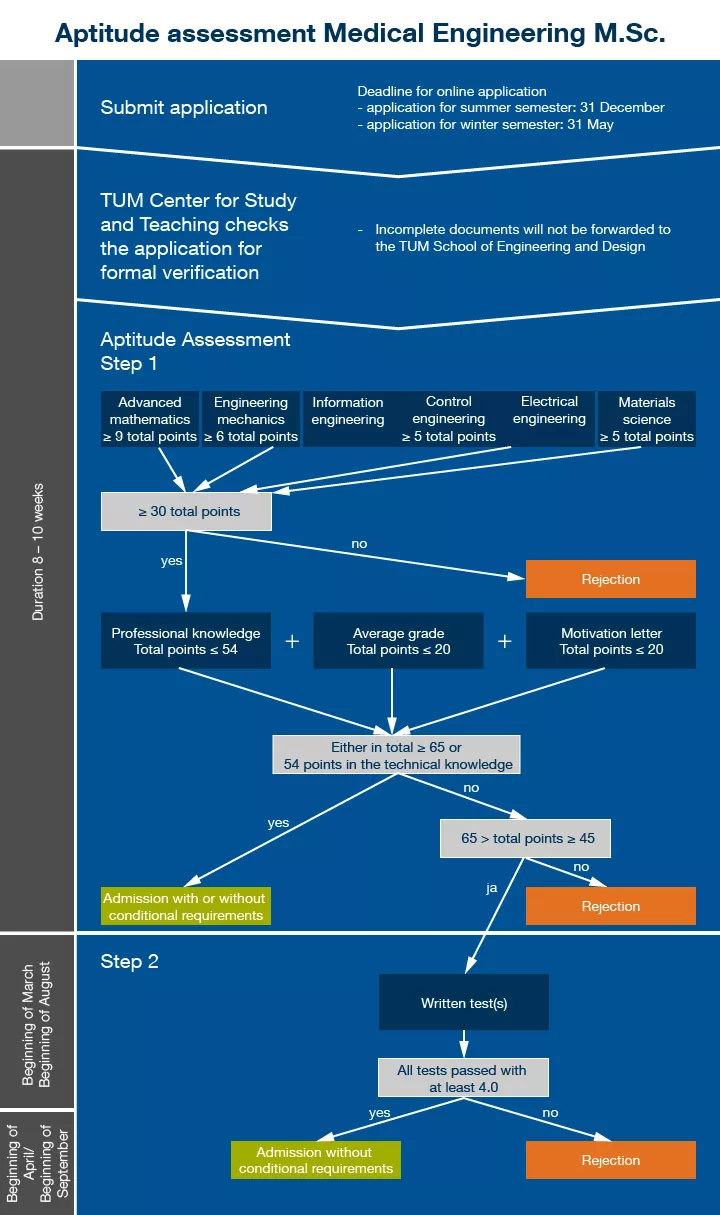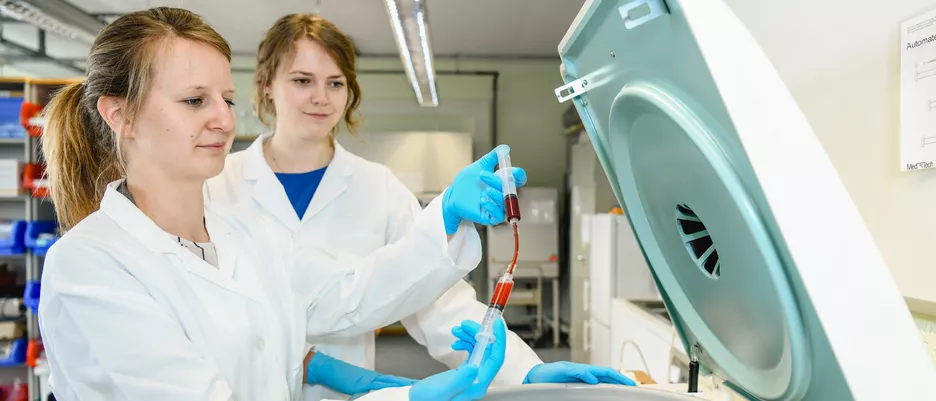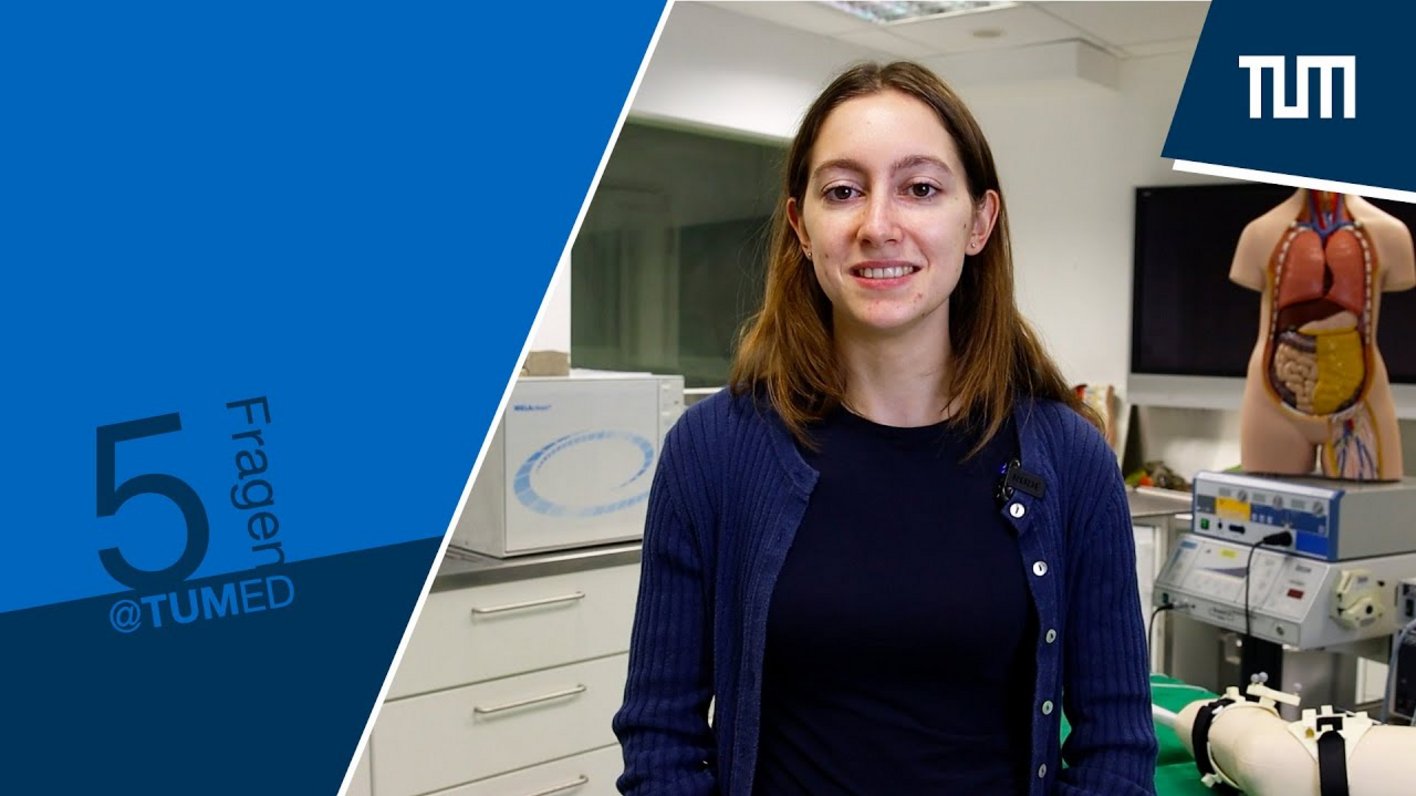Medical Engineering M. Sc.
Technology Serves Humanity
Your goal is to use your engineering skills to improve the quality of life into old age and to develop devices for novel medical treatment methods? Perhaps you once considered the idea of studying medicine, and ultimately found yourself in the engineering sciences?
Then why not combine both spheres and learn everything you need for successful interdisciplinary work in medical technology with us. Medical technology engineers develop and support devices for prevention, diagnosis, and rehabilitation. This requires a broad spectrum of expertise from the natural and engineering sciences, computer science, and medicine.
What you'll learn for your future?
Graduates are able to recognize where medical devices can usefully support the surgeon's work in everyday clinical practice. They understand how the devices work, know the basic algorithms for programming them, and can apply them in a problem-oriented manner. They can assess which applications - such as mechatronic systems - to use and where their strengths lie.
Knowledge of anatomy, physiology, and pathology of organ systems is taught, enabling graduates to carry out independent analyses of engineering problems in medical technology. Students develop solutions in the field of plastics engineering. They can critically evaluate materials engineering issues and assess approval-relevant and legal requirements in the manufacture of medical devices.
Graduates learn to apply kinematic geometry methods to design and analyze gears and robots and are familiar with techniques for solving motion tasks involving joint structures. The degree program focuses on creating software-supported kinematic processes for gearboxes and robots using Matlab calculation libraries and Catia design methods. They know the central statistical procedures for evaluating multi-factorial experimental designs, applying them to new data sets, and interpreting the associated results.
More information on the M.Sc. Medical Engineering can be found on our TUM Medical Engineering Wiki.
Studying Medical Engineering at TUM
Type of Study: Full Time
Standard Duration of Studies: 4 Semester
Credits: 120 ECTS
Main Locations: Garching
Admission Category: Aptitude Assessment for Master
Start of Degree Program: Summer and Winter Semester
Application Period: Winter semester: 01.04. – 31.05. and Summer semester: 01.11. – 31.12.
Required Language Proficiency: German
Tuition Fees: for Students from Non-EU Countries
The master's program offers you great flexibility to create your individual study plan. The program is structured as follows:
- Master's modules divided into focus areas (mechatronics & device engineering, materials & implants, musculoskeletal assistance systems, regulations & study design) and profile areas (kinematics and robotics, electronics and control, information technology, design, medical technology cross-sectional subjects) as well as the engineering flexibility area.
- Supplementary subjects
- University internships
- Research practice (term paper, team project or research internship)
- Key competencies (language courses, soft skills workshops, ...)
- Master's Thesis
The study program includes modules on:
- Mechatronics and device technology (e.g. automation technology in medicine, mechatronic device technology, motion technology)
- Materials and implants (e.g. Fundamentals of Medical Technology: Medical Engineering, Plastics and Plastics Technology)
- Musculoskeletal assistance systems (e.g. production ergonomics, kinematic design of joint structures with Matlab and CAD)
- Regulations and study design (approval of medical devices)
- Kinematics and robotics (e.g. assembly, handling and industrial robots, motion control by controlled electric drives)
- Electronics and control (e.g. modern methods in control engineering 1-3, fundamentals of electrical machines, microelectronics in mechatronics)
- Information Technology (e.g. Development of Intelligent Distributed Embedded Systems in Mechatronics, Advanced Topics of Software Engineering, Optimization Methods in Automation Engineering)
The language of instruction on the Master's degree program in Medical Engineering is predominantly German. Please note that proof of German language proficiency must therefore be submitted with your application. Individual elective modules are also offered in English.
ED students have numerous opportunities for study-related stays abroad worldwide. You can find more information on study abroad in the Wiki.
An internship before the start of studies is recommended. According to the subject examination and study regulations, proof of at least eight weeks of industrial experience is required unless you have already completed this during your first degree. If you cannot provide evidence of such an internship when you submit your application, you must complete an internship of at least eight weeks during your Master's degree course.
Please apply through the TUMonline application portal and upload your application documents.
Minimum requirements to apply for a Master's program at TUM are a recognized undergraduate degree (e.g. a Bachelor’s) and the successful completion of the aptitude assessment procedure to evaluate your individual talents and motivation for study.
The formal requirements for admission to this Master's degree program are:
- a Master's entrance qualification (see TUM glossary of documents)
- Specialist knowledge from basic areas of mechanical engineering
- Higher mathematics
- Technical Mechanics
- Information Technology
- Control engineering
- Electrical engineering
- Materials science
- German language skills
Generally, applicants with a qualification for postgraduate studies (e.g. a bachelor’s) obtained outside of the EU/EEA must have their documents reviewed in advance through uni-assist.
Applicants who have completed their first degree in Bangladesh, China, India, Iran or Pakistan require a GRE (General) with minimum scores in the areas listed below to complete their application documents. The minimum scores required are:
- Verbal Reasoning: no minimum score
- Quantitative Reasoning: 164
- Analytical Writing: 4.0
- Institution code: 7806, Department code: 5199 ("all other departments")
Alternatively, a GATE test can also be submitted. The lower limit here is the "minimum qualifying score of the respective year".
If you receive an offer of admission, you will additionally have to submit individual documents as notarized copies to be enrolled.


